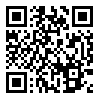Volume 36, Issue 4 (2018)
jmciri 2018, 36(4): 213-220 |
Back to browse issues page
Download citation:
BibTeX | RIS | EndNote | Medlars | ProCite | Reference Manager | RefWorks
Send citation to:



BibTeX | RIS | EndNote | Medlars | ProCite | Reference Manager | RefWorks
Send citation to:
Salemi Khameneh A, Ghorbani S, Motahedi A. The Effectiveness of Dialectical Behavior Therapy on Emotion Regulation, Positive and Negative Affect, Aggressive and Self-Injury Behavior of 13-16 Year Old Female Students. jmciri 2018; 36 (4) :213-220
URL: http://jmciri.ir/article-1-2865-en.html
URL: http://jmciri.ir/article-1-2865-en.html
Department of Psychology, Faculty of Humanities, Islamic Azad University of Varamin, Tehran, Iran.
Abstract: (4487 Views)
Background: The purpose of this study was to determine the effectiveness of Dialectical Behavioral Therapy (DBT) on emotion regulation, positive and negative affection, aggressive behavior and self-harm in female students.
Methods: The research method was experimental with pretest-post-test design with experimental and control groups. The statistical population of the study included all 13- to 16-year-old female students from the first level high schools in Karaj city in 2017. Among the study population, using the purposeful sampling method, based on the positive and negative affects questionnaire, Buss & Perry, self-injury inventory questionnaire and the emotional adjustment questionnaire Gross at the forefront, 30 people who had entry criteria formed our statistical sample. The 30 subjects were chosen completely in 2 groups of 15 subjects (experimental and control groups). The experimental group received DBT, while the control group was on the waiting list and did not receive any treatment. To analyze the data, multivariate covariance analysis (MANCOVA) was used to accelerate the results of the SPSS-21 software.
Results: The findings revealed that after being treated by DBT in the experimental group, post-test scores increased significantly in emotion regulation and positive affect variables of the experimental group (P<0.001) compared to the control group (respectively from 30.43 and 30.93 in the control group to 46.27 and 32.80 in the experimental group). Post-test scores also decreased significantly in negative affect, aggressive behavior and self-injury variables after being treated by DBT (P <0.001) (from 29.32, 100.66 and 29.14, respectively, in the control group to 13.19 and 74.43 and 21.33 in the experimental group).
Conclusion: According to the findings of this study, DBT is effective in reducing negative affect, aggressive and self-injury behavior and increasing emotion regulation and positive affect.
Methods: The research method was experimental with pretest-post-test design with experimental and control groups. The statistical population of the study included all 13- to 16-year-old female students from the first level high schools in Karaj city in 2017. Among the study population, using the purposeful sampling method, based on the positive and negative affects questionnaire, Buss & Perry, self-injury inventory questionnaire and the emotional adjustment questionnaire Gross at the forefront, 30 people who had entry criteria formed our statistical sample. The 30 subjects were chosen completely in 2 groups of 15 subjects (experimental and control groups). The experimental group received DBT, while the control group was on the waiting list and did not receive any treatment. To analyze the data, multivariate covariance analysis (MANCOVA) was used to accelerate the results of the SPSS-21 software.
Results: The findings revealed that after being treated by DBT in the experimental group, post-test scores increased significantly in emotion regulation and positive affect variables of the experimental group (P<0.001) compared to the control group (respectively from 30.43 and 30.93 in the control group to 46.27 and 32.80 in the experimental group). Post-test scores also decreased significantly in negative affect, aggressive behavior and self-injury variables after being treated by DBT (P <0.001) (from 29.32, 100.66 and 29.14, respectively, in the control group to 13.19 and 74.43 and 21.33 in the experimental group).
Conclusion: According to the findings of this study, DBT is effective in reducing negative affect, aggressive and self-injury behavior and increasing emotion regulation and positive affect.
Keywords: : Dialectical behavioral therapy, Emotion regulation, Positive and negative affection, Aggressive behavior, Self-injury
| Rights and permissions | |
 |
This work is licensed under a Creative Commons Attribution-NonCommercial 4.0 International License. |



